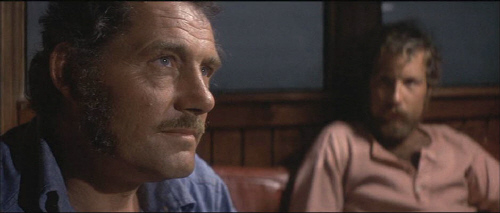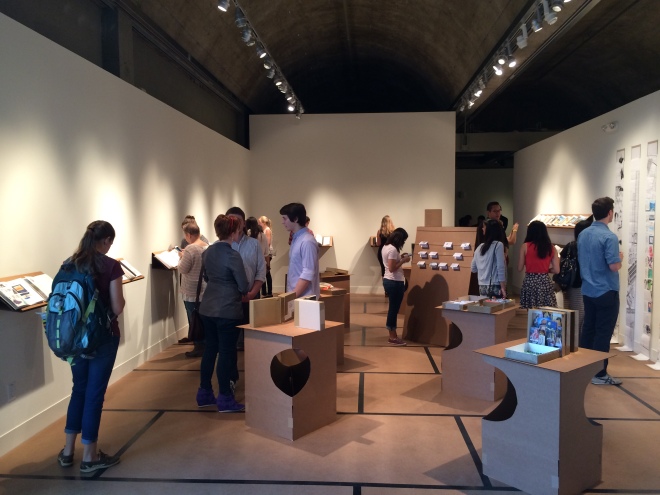
“Necessita induce, e non diletto.” (“It is a necessity and not pleasure that compels us.”) – Dante Alighieri, The Divine Comedy, Inferno)
There may be droughts, but ultimately, the artist must create. Left alone, thoughts smolder, and a flame sparks.
The writer must give voice to thought, the artist must give voice to vision, and the singer must give voice to sound. The musician must give voice to the melody. The medium is different; however, the result, sometimes free-flowing, other times tortured, soars.
My daughter showed me a quote sometimes attributed to Ernest Hemingway (though it probably originated with Red Smith, Paul Gallico, or another earlier scribe) that reads, “Writing is easy. You simply sit down at the typewriter, open your veins, and bleed.”
What I write here is the result of the wrestling match inside my head bled onto the page (screen). Writing is, for me, cathartic. I write for me. Just me. I write to exorcise the demons occupying too much real estate inside my little brain. When I am bothered, angry, upset, happy, confused, enamored, penitent, wistful, nostalgic, depressed, disgusted, or (name the emotion), I can often only truly understand how I feel by wrestling with my thoughts on the page.
I am not alone.
“The impulse to write things down is a peculiarly compulsive one, inexplicable to those who do not share it, useful only accidentally, only secondarily, in a way that any compulsion tries to justify itself. I suppose that it begins or does not begin in the cradle.” – Joan Didion, Slouching Towards Bethlehem.
All creative people have this compulsion to understand. The lyricist and musician (sometimes the same person) are restricted far more than me by structure and rhyme, whereas I am only limited by coherence and cadence. So too, the painter, who must become an architect to effectively develop the vision they are compelled to reproduce on canvas.
I am fascinated by the creative process and the different paths inspiration takes through inspired people. These people are heroes to me. Not in the Marvel universe way or celebrity way, but in how they are compelled to produce, driven to evict the vision seen only in their mind and share it with others. I am fascinated when I listen to a piece of classical music and find a story developing inside my head played out by the various instruments. I wonder if that was the composer’s intent or if I’m just nuts.
I write because there is an overwhelming need to sit and purge what is ruminating deep inside. I don’t know what the end result will look like or even where I come down on various topics until I sit, research, and write it down. It is cathartic and oftentimes the healthier vent for sadness, disappointment, or anger.
I have witnessed this process within my own house in different ways. My daughter studied art in college. I watched, sometimes with tears in my eyes and a lump in my throat, as she painted Dorian Gray repeatedly. She reflected the pain she experienced watching her mother die of cancer over many years onto the canvas. Her body image issues spilled onto the canvas. She was compelled to exorcise these thoughts through her art. It pained me and fascinated me to watch. Like me, my son writes. His work is a mélange of Douglas Adams, Rod Serling, Christopher Marlowe, and Ian McEwan. He cloaks analogies in irreverent prose and biting satire. He, too, is compelled to exorcise these thoughts through his art.
“Don’t tell me the moon is shining; show me the glint of light on broken glass.” – Anton Chekhov
Another in our family also has this drive, this compulsion, my niece, Jackie Marchal. I call her my niece because, as my late wife was the only child of two only children, we joked that her family tree was more akin to a creeping vine. Anyway, my late wife’s cousin’s children, ergo my niece! She is a singer, lyricist, and musician. Recently graduating from Columbia after having been raised in NYC, I have witnessed her art mature with each successive song. I admit to not having seen any of her live performances in the city and have only recently focused on her burgeoning portfolio of music.
This past weekend, I worked on finishing a desk and putting on her music while I sanded, stained, and polyurethaned. The first thing that struck me was the effortless fluidity of her voice. Her voice floats. I have no better word for it. Despite not having an empty bourbon glass in my hand, I could almost see her voice floating throughout the garage as the rain beat down outside. I shuffled through many of her songs and then, and only then, listened to the words by playing them a second time. All artists pull from their personal lives. As I listened to the lyrics of each song, I wondered how much of what I was hearing was experienced and how much was storytelling. That may come from knowing the family. I generally don’t consider that when listening to other artists. The pain and the heartache in several of her songs compelled me to sit and write this because I once again saw (heard) the creative process demanding a voice. She is compelled to exorcise these thoughts through her art.
“Such sweet compulsion doth in music lie.” – John Milton, The Complete Poetry
They say stereotypes are often rooted in reality, a caricaturist’s reduction of whole and unique people. The tortured artist is one such trope. And while I often struggle with thoughts and sometimes need to organize them on paper to understand how I truly feel (and sometimes it is a tortuous journey), it is an exercise I cannot do without—no more than my daughter, son, or niece. The artist must create.
For more information on Samantha Thivierge, see her Instagram.
For more information on Cameron Fucile, see his website: www.cameronfucile.com or Spotify.
For more information on Jackie Marchal, find her on Apple Music, Spotify, or YouTube.




